Ludwig Preller was a German philologist and antiquarian.

Christian Gottfried Ehrenberg was a German naturalist, zoologist, botanist, comparative anatomist, geologist, and microscopist. He is considered to be one of the most famous and productive scientists of his time.
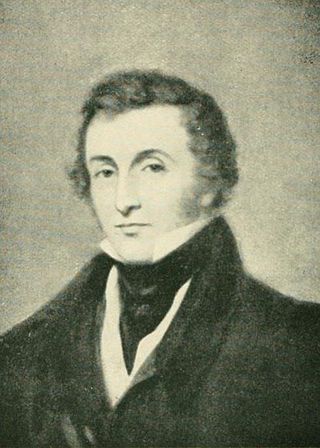
Sir William Jardine, 7th Baronet of Applegarth FRS FRSE FLS FSA was a Scottish naturalist. He is known for his editing of a long series of natural history books, The Naturalist's Library.
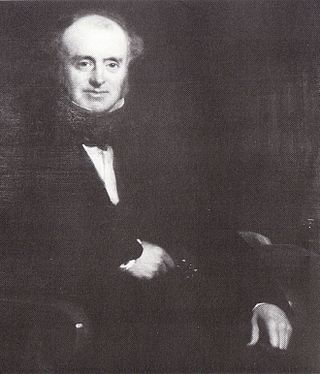
James Walker was an influential British civil engineer and contractor.
Ernst Christian Gottlieb Reinhold was a German philosopher. He was the son of Karl Leonhard Reinhold and grandchild of Christoph Martin Wieland.
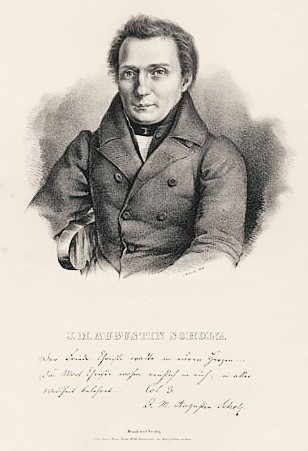
Johann Martin Augustin Scholz was a German Roman Catholic orientalist, biblical scholar and academic theologian. He was a professor at the University of Bonn and travelled extensively throughout Europe and the Near East in order to locate manuscripts of the New Testament.
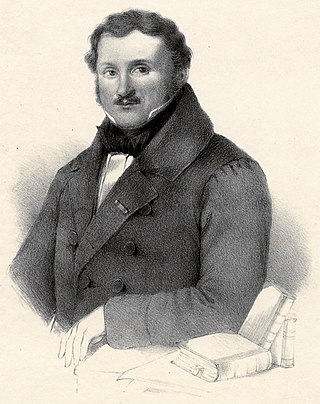
Heinrich August Pierer was a German officer, lexicographer and publisher known particularly for his Universal-Lexikon der Gegenwart und Vergangenheit, a multi-volume encyclopedic dictionary first published in 1824 as Encyclopädisches Wörterbuch der Wissenschaften, Künste und Gewerbe. Bearbeitet von mehreren Gelehrten ; it is considered "the first full-fledged modern general lexicon".
Josef Anton Henne was a Swiss historian and politician active during the formative phase of the modern Swiss state.
Samuel Lorenzo Knapp was an American author and lawyer.
Karl Friedrich Vollrath Hoffmann was a German geographer.

Gustav Alexander Wilhelm Nicolai was a Prussian writer and composer.
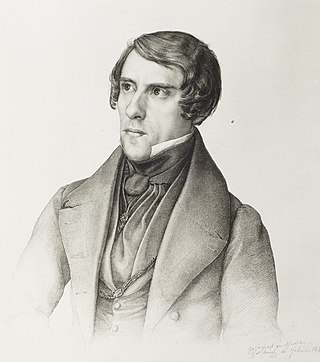
Georg Kaspar Nagler was a German art historian and art writer.
Karoline von Woltmann, née Stosch was a German author who also wrote under the pseudonym Luise Berg. She was regarded by her contemporaries as "the German Genlis".

Robert Schneider was a German portrait painter who worked in Hamburg and Lübeck. He was one of the first portraitists in that area to move from the earlier Romanticized style to more nearly pictorial representations.

Carl Balthasar Malß was a German poet, architect and theatre director.
Friedrich Gustav Schilling was a German musicologist, editor and lexicographer.
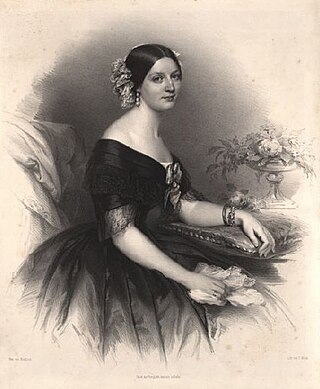
Virginia Livia Frege, née Gerhardt was a German singer (soprano), Prima Donna of the Leipzig Stadttheater, arts patron and co-founder of the Leipzig Bach Society. She was referred to as the "Queen of Leipzig's romantic song singing". Frege is best known for her performances of the works by Felix Mendelssohn Bartholdy. Her repertoire included songs by Heinrich Marschner, Franz Schubert, Robert Schumann and Mendelssohn.
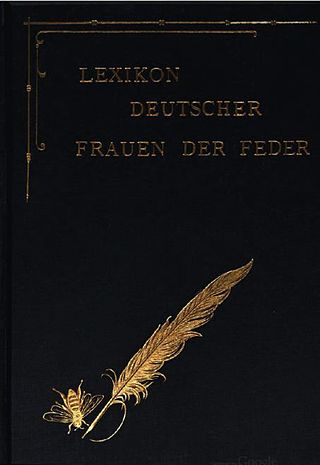
Sophie Caroline Pataky was an Austrian bibliographer. Her two-volume Lexikon deutscher Frauen der Feder, published in 1898, was the first German-language encyclopedia of women writers edited by a woman.
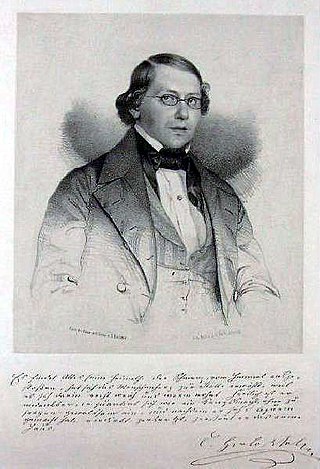
Carl Herloßsohn or Karl Herloßsohn was a German author, journalist and encyclopaedist.
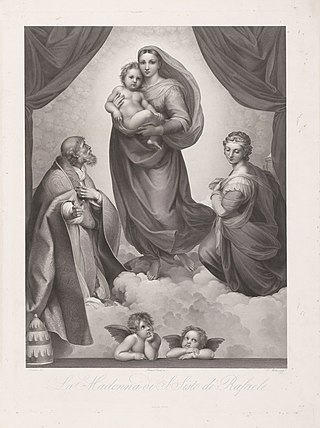
Apollonia Seydelmann, née De Forgue was a German-Italian miniaturist.














